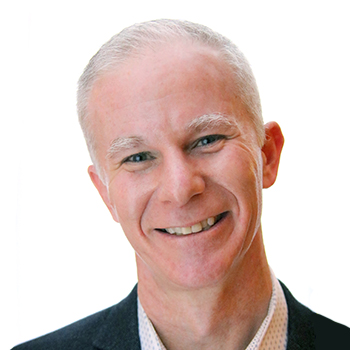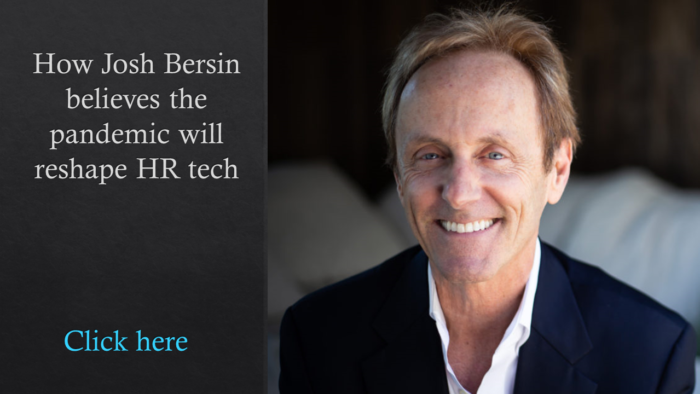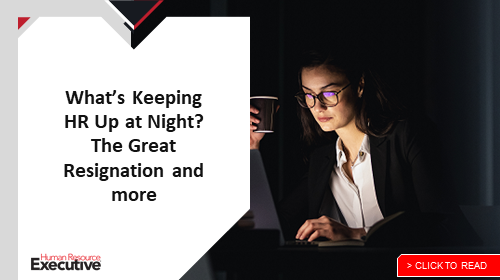HRE spoke with Stelzner ahead of his 2022 HR Tech Virtual keynote address, entitled “Where Purpose Meets People: HR’s Time Has Come,” which is set for 11 a.m. ET on March 3. He shared his thoughts about sensing stress in an employee’s data, the need for more holistic HR solutions and why the lessons of COVID-19 must not be forgotten when we return to work. Register here.
HRE: Can HR technology and specifically data help turn the tide on the Great Resignation?

Mark Stelzner: Yes. We have more data than we’ve ever had in the history of HR but unfortunately, the data often lives in disassociated systems and in a disassociated taxonomy. There are tools and technologies today that can knit these disassociated components together and allow us to act with much more timely and educated information.
We’re seeing a lot of progress. We can tell whether Phil needs rest. Maybe it’s a risk of burnout because Phil’s got a bank of 872 hours of PTO, right? We’re seeing that you use high blood pressure medication, and this is all in the auspices of privacy. But what would that tell us? Phil sucks at taking vacation. What do I need to do as Phil’s manager? Tell him that the world’s not going to stop turning and you need to take two weeks to rest and refresh.
Or God forbid, Phil has a loved one who was diagnosed with stage 2 cancer. How do we mobilize all the services and programs that we’ve spent billions of dollars assembling for this very purpose and thread them together into a package to give Phil and his family a playbook of how to consume second opinion services and any bespoke offering that will help his family navigate this very challenging moment?
Related: Insights into EX, culture and innovation top HR Tech Virtual agenda
HRE: You speak with a lot of HR directors who are approaching the third anniversary of hybrid work. How are they holding up?
Stelzner: Out of necessity, HR was thrust firmly into the limelight as a result of COVID [and] HR now has accountability and responsibility for the health and wellbeing of its population and supporting policies and governance around effective workplace practices. Also finding the right talent that can work in this very dynamic and challenging environment.
 HR hasn’t caught a break since this all started, because we have been the mouthpieces, faces and the hearts of this untenable and unpredictable environment.
HR hasn’t caught a break since this all started, because we have been the mouthpieces, faces and the hearts of this untenable and unpredictable environment.
HRE: And they’ve had to think on their feet in a crisis.
Stelzner: We’re all exhausted. We have yet to determine the emotional and health impacts from the trauma that we’ve collectively experienced over the last couple of years but people have kept score. How was I treated? How was I cared for? How did the employer think about me as the individual with my own heart, mind and needs? How did my manager and HR think about me?
Related: HR Tech Virtual keynoter Josh Bersin on relieving employee burnout
Our expectations and priorities have changed. The nature of work has changed. We need to stop thinking about employees. We need to start thinking about workers and whether those workers are part-time, contingent, gig or assembled or full-time equivalents. How do we find skilled individuals that we can assemble to meet a business problem or opportunity? They will assemble and meet that moment and they will disassemble and reassemble. A lot of organizations haven’t woken up yet to the magnitude of that reality.
HRE: What are the HR tech opportunities for 2022?
Stelzner: We need fewer, deeper and more integrated employee experiences. We need to center our employees on common front doors that are the assembly of the multitude of technologies and experiences that make up the entire employee life cycle. Gone are the days when you can have 150 different HR tech vendors and your employees can successfully navigate from moment to moment through your performance management, comp, recruiting, background checks and your onboarding and payroll. We need this to be assembled, frictionless, seamless, highly personalized experiences. This means portals and employee experiences are back. It’s the mid-’90s again.
Once we’re in that front door, how do we integrate through APIs and not have to sign on for a thousand different experiences and download 1,500 different unique apps for every moment of the experiential life cycle? How do we move in and out of these threaded experiences in an improved process that allows us to consume those products and services in real-time?
Related: Looking to slow the Great Resignation? It’s time for a skills revolution
HRE: Do you think lessons learned in the past three years are going to be remembered and implemented for the next crisis?
Stelzner: The biggest risk to humanity is we fall back to old habits. I truly hope that we’ve learned something from this moment. Even when it comes to workplaces and how we think about employees, employment and interpersonal connection. We’ve always talked about centering on the person but nothing has amplified the need of centering on each individual human like our collective experience the last two years. It breaks my heart to think that we might forget that lesson and fall back into old habits.
 HRE: What drives your passion for this topic?
HRE: What drives your passion for this topic?
Stelzner: I spent a lot of time coaching people and I ask them questions like what steals your energy and what gives you energy? What gives me energy is this one-on-one connection, is these moments, our ability to shape the hearts and minds of individuals who in turn will shape the experiences and the lives of the millions of people that they encounter.
What I’ve found a lot of energy from over the last couple of years is regrouping on the importance of truly human connection. I’ve spent a lot of time with heads of HR who have just needed a place to cry, right? CTOs, CFOs and senior executives who wish they could snap a finger and [make things better] or turn the tide of someone dealing with loss, having to call the families of loved ones or engage with those that are survivors of this horrible trauma we’ve collectively gone through. Now in doing so they have also rediscovered their purpose.
What gives me the most energy at this moment is we’re all looking within to how we want to present and carry ourselves and where we want to put our energy forward. There’s nothing bad that comes from that, in my opinion—there’s only good and grace.
I found heart to be one of the most important aspects of our work experience and I want to hear that beat every single day. What gives me energy is we have continued to refine and find the heart in HR and I want us to hold onto that moment and continue to hear the resonating sound of that beating heart, every day, moving forward.
Register for HR Tech Virtual here.
The post How hidden HR data can help identify at-risk workers appeared first on HR Executive.